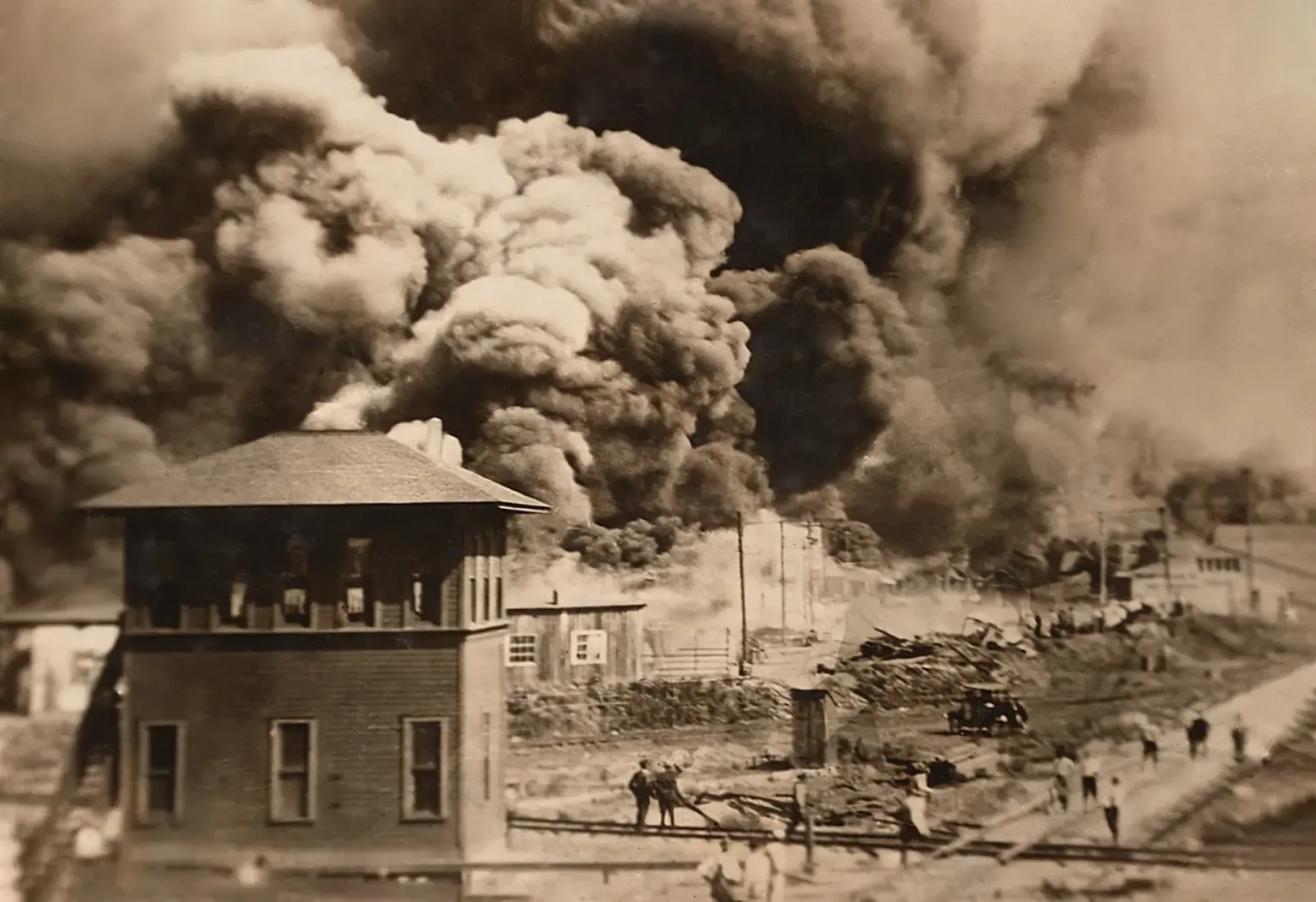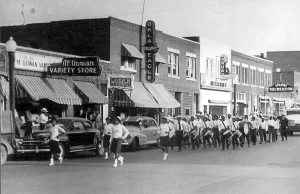U.S. Senate Passes Historic Black Wall Street National Monument Bill Before 104th Anniversary
In a landmark bipartisan achievement, the U.S. Senate has passed legislation designating Tulsa’s Historic Greenwood District as a national monument, advancing the long-stalled Black Wall Street National Monument bill just days before the 104th anniversary of the 1921 Tulsa Race Massacre. This historic vote represents a crucial step toward federally recognizing one of America’s most prosperous Black communities and commemorating the devastating racial violence that destroyed it.
Bipartisan Senate Victory Honors Tulsa’s Black Wall Street Legacy
The passage of S.3543, co-sponsored by Democratic Senator Cory Booker of New Jersey and Republican Senator James Lankford of Oklahoma, marks a significant milestone in efforts to establish federal recognition for the Historic Greenwood District. This bipartisan legislation acknowledges both the remarkable economic prosperity of Black Wall Street and the tragic domestic terrorism that devastated the community on May 31-June 1, 1921.
Senator Lankford emphasized the historical significance during his congressional address: “It’s a scar on our nation’s history and on my state’s history, but it’s an era that we remember for a reason. Because we know how far we’ve come.” His remarks underscore the importance of preserving difficult chapters in American history while celebrating the resilience and achievements of the Black community.
The Senate vote culminates years of advocacy by the Black Wall Street National Monument Coalition, whose members have persistently lobbied Congress to honor their ancestors and preserve their descendants’ legacy. Their grassroots organizing efforts have been instrumental in maintaining momentum for federal recognition despite previous legislative obstacles.
Historic Greenwood District: America’s Premier Black Economic Powerhouse
Before the 1921 massacre, Tulsa’s Greenwood District represented the pinnacle of Black economic achievement in early 20th-century America. The thriving community housed hundreds of businesses established by formerly enslaved people from the South and Muscogee Creek Freedmen, creating unprecedented wealth concentration within a segregated Black neighborhood.
The district earned its “Black Wall Street” nickname through remarkable entrepreneurial success that included banks, hotels, theaters, newspapers, and professional services. This economic ecosystem demonstrated Black Americans’ capacity for self-determination and prosperity despite systemic racism and Jim Crow restrictions throughout the broader region.
The community’s success story tragically ended when Tulsa authorities deputized white mobs between May 31 and June 1, 1921, enabling what historians now recognize as the single worst instance of domestic terrorism in American history. The coordinated attack destroyed over 1,200 homes and businesses while killing hundreds of residents, though exact casualty numbers remain disputed due to systematic cover-up efforts.
National Monument Status Preserves Critical American History
The Black Wall Street National Monument designation serves multiple purposes beyond simple historical commemoration. Federal monument status ensures permanent protection for the Historic Greenwood District while establishing educational frameworks for teaching future generations about both Black economic achievement and racial terrorism in American history.
Dr. Tiffany Crutcher, descendant of massacre survivors and founder of the Black Wall Street Legacy Fest, has emphasized the urgency of federal action: “For the sake of these living witnesses to history and future generations, Congress and the President must act swiftly to ensure Greenwood’s story is enshrined and its lessons never forgotten.”
The timing of the Senate vote holds particular significance, occurring just days before the annual Black Wall Street Legacy Fest, when thousands of visitors descend upon Historic Greenwood District to commemorate the massacre anniversary and celebrate ongoing community resilience.
Legislative Process Advances to Republican-Controlled House
Thursday’s Senate passage moves the Black Wall Street National Monument bill to the House of Representatives, where it faces uncertain prospects in the Republican-controlled chamber. The legislation must navigate potentially challenging political dynamics as lawmakers balance historical recognition with contemporary debates about race, memory, and federal authority.
Senator Lankford addressed potential concerns about federal overreach during his floor speech, clarifying that the national monument designation “didn’t change the property rights of any person in Tulsa or Oklahoma” and doesn’t involve eminent domain or expanded federal control over the area. These reassurances aim to address conservative concerns about government intervention while maintaining focus on historical preservation.
The bill’s bipartisan sponsorship provides strategic advantages for House consideration, demonstrating that Black Wall Street recognition transcends typical partisan divisions. Senator Lankford’s Republican leadership on the legislation particularly strengthens prospects for conservative support in the lower chamber.
Community Impact and Cultural Significance
The national monument designation carries profound meaning for Tulsa’s Black community, whose ancestors endured both remarkable prosperity and devastating loss within the same geographic area. Federal recognition validates decades of community efforts to preserve their history while ensuring that Black Wall Street’s story receives appropriate national attention.
The legislation acknowledges multiple historical layers within the Greenwood District narrative. Senator Lankford noted that the monument represents “what it was like before when it was Black Wall Street, a thriving community,” “what it was like afterwards, when people stayed and rebuilt a community,” and “what it is now, when people with great pride continue to be able to thrive.”
This comprehensive historical framework ensures that the national monument encompasses both tragedy and triumph, providing visitors with complete understanding of Black Wall Street’s complex legacy. The designation also supports ongoing community development efforts while maintaining connections to ancestral heritage.
Educational and Tourism Implications
National monument status for Black Wall Street Historic Greenwood District will significantly enhance educational programming and heritage tourism opportunities in Tulsa. Federal designation typically increases visitor numbers while providing resources for interpretive programs, museum development, and historical research initiatives.
The enhanced profile will support local economic development through increased tourism revenue while creating employment opportunities within the heritage sector. These economic benefits align with the original Black Wall Street entrepreneurial spirit while honoring the community’s business legacy.
Educational partnerships with schools, universities, and cultural organizations will expand opportunities for students to engage with this critical period in American history. The national monument status provides credibility and resources for developing comprehensive curricula about Black economic achievement, racial violence, and community resilience.
Broader Context of Racial Justice and Historical Recognition
The Black Wall Street National Monument bill represents part of broader national conversations about acknowledging difficult aspects of American racial history while celebrating Black achievement and resilience. Federal recognition of the Tulsa Race Massacre and Black Wall Street’s economic success provides official validation of experiences long marginalized in mainstream historical narratives.
The legislation also demonstrates growing bipartisan recognition of the importance of preserving sites significant to African American history. This federal acknowledgment joins other recent efforts to expand national historical recognition beyond traditional narratives focused primarily on white experiences.
As the bill advances to House consideration, its passage would establish important precedent for federal recognition of other sites significant to Black history and racial violence. The Black Wall Street designation could encourage similar efforts for other historically significant locations that have received insufficient national attention.
The national monument bill’s progress reflects evolving American approaches to confronting historical injustices while celebrating community resilience and achievement in the face of systemic oppression.






